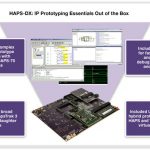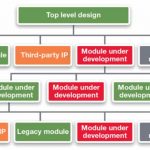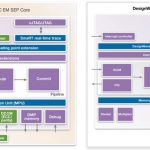Way back when SpringSoft was still SpringSoft and not Synopsys they launched Verdi Interoperability Apps (VIA) and an exchange for users to share them open-source style. I wrote about it back in 2011 when it was announced. Today, Synopsys announced the first developer forum for VIA. It will be held at SNUG on Wednesday, March 26,… Read More
Special Interest Group for HSPICE at DesignCon in Two Weeks
DesignCon brings together engineers from around the world that are interested in IC design, package design and board design, plus the signal integrity issues of creating high-speed systems. In just two weeks there’s a Special Interest Group(SIG) just for users of HSPICE in their tool flow, and it meets for three hours during… Read More
A little FPGA-based prototyping takes the eXpress
Ever sat around waiting for a time slot on the one piece of big, powerful, expensive engineering equipment everyone in the building wants to use? It’s frustrating for engineers, and a project manager’s nightmare: a tool that can deliver big results, and a lot of schedule juggling.… Read More
Known Unknowns and Unknown Unknowns
Donald Rumsfeld categorized what we knew into known unknowns and unknown unknowns. In a chip design, those unknown unknowns can bite you and leave you with a non-functional design, perhaps even intermittent failures which can be among the hardest problems to debug.
Chips are too big to do any sort of full gate-level simulation,… Read More
Designing a DDR3 System to Meet Timing
My very first thought when hearing about HSPICE is using it for IC simulation at the transistor-level, however it can also be used to simulate a package or PCB interconnect very accurately, like in the PCB layout of a DDR3 system where timing is critical. I attended a webinar this morning that was jointly presented by Zuken and Synopsys… Read More
Conquering errors in the hierarchy of FPGA IP
FPGA design today involves not only millions of gates on the target device, but thousands of source files with RTL and constraints, often generated by multiple designers or third party IP providers. With modules organized in some logical way describing the design, designers brace themselves for synthesis and a possible avalanche… Read More
Social Media at Synopsys
When I talk about social media and mention Synopsys you may quickly think of Karen Bartleson, the Senior Director of Community Marketing, because she:
- Blogs and podcasts
- Created the best interactive DAC game ever in 2013 using barcodes and points
- Tweets @karenbartleson
- Is president of the IEEE Standards Association
- Has over
M-PCIe, Data Converters, and USB 3.0 SSIC at IP SoC 2013
Synopsys is taking IP-SOC 2013 seriously, as the company will hold several presentations, starting with a Keynote: “Virtual Prototyping – A Reality Check”, by Johannes Stahl, Director, Product Marketing, System-Level Solutions, Synopsys, highlighting current industry practice around putting virtual prototyping to work… Read More
ARC EM SEP Processor, Safety Ready Solution for Automotive
If you are familiar with Processor IP core, you certainly know DesignWare ARC EM4 core, 32-bit CPU that SoC designers can optimize for a wide range of uses, and differentiate by using patented configuration technology to tailor each ARC core instance to meet specific performance, power and area requirements. If you develop a product… Read More
TSMC ♥ Synopsys (HSPICE)
In case you haven’t noticed, Synopsys has been in the press lately talking about their relationship with TSMC. Since I’m an internationally recognized industry expert they gave me a call for a briefing and I was happy to do it. Staying connected with the #1 EDA company is important and fun since I get to ask questions that most people… Read More











